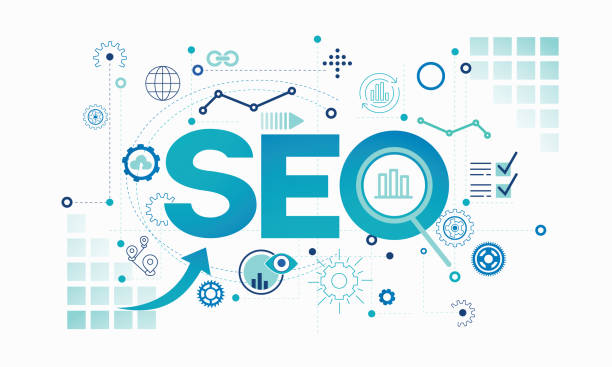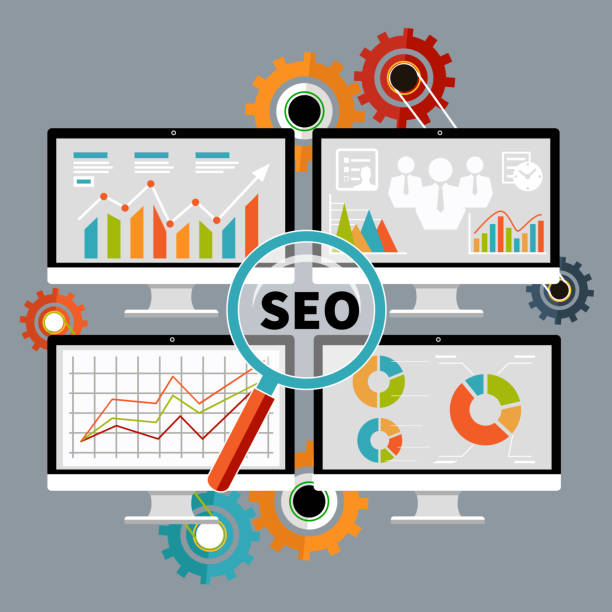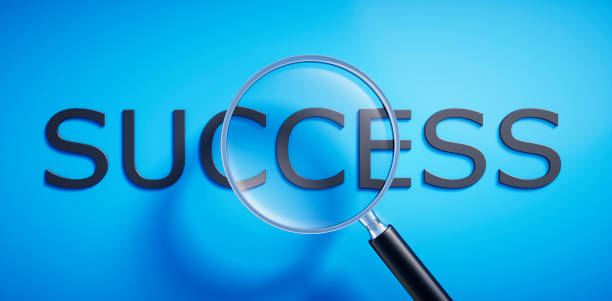What is SEO and Why is it Important

What is SEO and Why is it Important?
#SEO (Search Engine Optimization) is the process of optimizing websites for search engines.
SEO is a set of techniques and strategies used to improve a website’s ranking in the organic search results of search engines like Google, Bing, and Yahoo.
When a user enters a query into a search engine, SEO helps your website appear higher in the rankings, thereby attracting more traffic.
The importance of SEO lies in the fact that organic traffic obtained from searches is usually of higher quality and more targeted than other marketing methods, as users are looking for answers to their needs, and your website can fulfill those needs.
Search engine optimization means understanding the complex algorithms of search engines and adapting the website to these algorithms to ensure that your content is as accessible and useful as possible for users. SEO is a continuous process and requires constant updating of strategies and techniques in response to changes in search engine algorithms.
In today’s digital world, SEO is recognized as one of the most fundamental parts of any online marketing strategy.
Is your online sales not as you expect? With Rasaweb, solve the problem of low sales and poor user experience forever!
✅ Increase visitor-to-customer conversion rate
✅ Create a pleasant user experience and increase customer trust
⚡ Act now to receive a free consultation!
Familiarity with White Hat, Black Hat, and Gray Hat SEO Types

Familiarity with White Hat, Black Hat, and Gray Hat SEO Types
In the world of #SEO, there are three main approaches: White Hat, Black Hat, and Gray Hat.
White Hat SEO refers to techniques that comply with search engine guidelines.
These methods focus on providing quality content, creating a good user experience, and earning natural links.
Using White Hat SEO is a long-term and sustainable strategy that gradually increases a website’s ranking.
In contrast, Black Hat SEO refers to techniques used to deceive search engines to achieve higher rankings.
These methods include keyword stuffing, hidden content, buying links, and other unethical techniques.
If search engines detect that a website is using Black Hat SEO, they may penalize or even remove that website from search results.
Gray Hat SEO is an approach that falls between White Hat and Black Hat SEO.
These techniques may not fully comply with search engine guidelines, but their goal is not to deceive search engines.
For example, buying links from relevant and high-quality websites might be considered a Gray Hat SEO technique.
Using Gray Hat SEO carries more risk than White Hat SEO, but less than Black Hat SEO.
Keyword Research and Its Importance in SEO

Keyword Research and Its Importance in #SEO
Keyword Research is one of the most important steps in the SEO process.
Keywords are the phrases users enter into search engines to find the information they need.
Keyword research helps you understand exactly what users are looking for and what phrases they are searching for.
Using this information, you can optimize your website content to achieve a higher ranking in search results relevant to your target keywords.
The keyword research process involves identifying keywords relevant to your business, analyzing their search volume, and evaluating the competition for those keywords.
Various tools are available for keyword research, including Google Keyword Planner, Ahrefs, SEMrush, and Moz Keyword Explorer.
Using these tools, you can identify high-potential keywords and develop your content strategy based on them.
Choosing the right keywords directly impacts the success of #SEO.
Keywords should be relevant to your website’s content and have enough traffic to attract significant traffic to your website.
Also, you should consider the competition for these keywords.
Choosing keywords with low competition can help you achieve high rankings faster.
| Keyword | Search Volume (Monthly) | Competition Level |
|---|---|---|
| SEO Training | 5000 | High |
| Website SEO | 8000 | Medium |
| Website Optimization | 3000 | Low |
On-Page SEO: Optimizing Page Elements

On-Page SEO: Optimizing Page Elements
On-Page SEO refers to a set of actions you take within your website to improve its ranking in search engines.
These actions include optimizing content, title tags, meta descriptions, URL structure, images, and other page elements.
The goal of On-Page SEO is to help search engines better understand your website’s content and relate it to user search queries.
One of the most important elements in On-Page SEO is content optimization.
Your content should be high-quality, relevant to target keywords, and valuable to users.
It should also have a proper structure and include attractive headings, subheadings, short and readable paragraphs, and high-quality images.
Title Tags and Meta Descriptions are also very important.
Title tags should be descriptive, engaging, and include primary keywords.
Meta descriptions should provide a summary of the page’s content and encourage users to click on your website’s link.
Optimizing the URL structure is also important.
URLs should be short, descriptive, and include keywords.
Using hyphens (-) instead of underscores (_) in URLs is recommended.
Image optimization also includes using appropriate file names, descriptive alt tags, and compressing images to reduce file size.
Did you know that 94% of users’ first impression of a business is related to its website design? With professional corporate website design by **Rasaweb**, turn this first impression into an opportunity for growth.
✅ Attract more customers and increase sales
✅ Build credibility and trust in the audience’s eyes⚡ Get a free website design consultation!
Off-Page SEO and the Importance of Link Building

Off-Page SEO and the Importance of Link Building
Off-Page SEO refers to a set of actions taken outside your website to improve its ranking in search engines.
The most important part of Off-Page SEO is Link Building.
Link building is the process of acquiring links from other websites to your website.
The more links you receive from authoritative and relevant websites, the higher your website’s ranking will be in search engines.
Links act as a vote of confidence from other websites to your website.
Search engines consider these links as an indicator of your website’s quality and authority.
However, not all links have equal value.
Links received from authoritative, relevant, and high-traffic websites have more value.
There are various methods for link building, including creating high-quality and valuable content that others want to link to, building relationships with bloggers and journalists, participating in online forums, and exchanging links with relevant websites.
You can also use natural link building methods, such as creating a comprehensive and useful informational resource, so that others automatically link to it.
Buying links is a Black Hat SEO technique and is strongly discouraged.
Search engines are able to identify purchased links and may penalize a website that uses this method.
Technical SEO and Website Technical Optimization

#Technical SEO and Website Technical Optimization
Technical SEO refers to a set of actions performed to improve the technical aspects of a website so that search engines can easily crawl, index, and understand your website.
Technical SEO includes optimizing website speed, URL structure, sitemap, robots.txt file, and using the HTTPS protocol.
Website speed is one of the important factors in search engine ranking.
Faster websites provide a better user experience and are more likely to keep users engaged and interacting.
To improve website speed, you can use methods such as image compression, using Content Delivery Networks (CDNs), and optimizing code.
URL structure should also be optimized.
URLs should be short, descriptive, and include keywords.
Using a hierarchical URL structure can help search engines better understand your website’s structure.
A sitemap is an XML file that contains a list of all pages on your website.
A sitemap helps search engines find and index all pages on your website.
The robots.txt file is a text file that tells search engines which pages of your website not to crawl.
You can use this file to prevent the crawling of unnecessary pages such as admin pages, duplicate pages, and private pages.
Using the HTTPS protocol is also essential for your website’s security.
HTTPS is a secure protocol that uses encryption to protect information between the user’s browser and the website server.
Google has announced that using HTTPS is a ranking factor.
| Performance Indicator | Goal | Measurement Tool |
|---|---|---|
| Page Load Speed | Less than 3 seconds | Google PageSpeed Insights |
| Crawl Rate | Maximum number of pages crawled per day | Google Search Console |
| Crawl Errors | As minimal as possible | Google Search Console |
User Experience (UX) and its Impact on SEO

User Experience (UX) and its Impact on #SEO
User Experience (UX) refers to users’ feelings and perceptions when interacting with your website.
A good user experience ensures that users can easily find the information they need, stay on your website and interact, and ultimately become your customers.
Google increasingly emphasizes user experience and considers it an important ranking factor.
Factors influencing user experience include website speed, website design, usability, quality content, and responsiveness.
Faster, more aesthetically pleasing, easier-to-use, high-quality content, and responsive websites offer a better user experience.
Good user experience has a direct impact on SEO.
Websites that provide a good user experience have lower bounce rates, longer dwell times, and higher conversion rates.
These factors indicate to search engines that your website is valuable and should be ranked higher.
Optimizing user experience is a long-term investment that can help improve your website’s ranking and increase traffic and sales. SEO means making your website user-friendly for visitors.
For example, if users quickly leave your website (high bounce rate), Google might conclude that your website is not relevant to them and may lower its ranking.
Local SEO and Attracting Local Customers

#Local SEO and Attracting Local Customers
Local SEO refers to a set of actions taken to improve the ranking of a local business in local search results.
Local SEO is crucial for businesses with a physical location that aim to attract local customers.
When a user enters a query into a search engine along with a location (e.g., “restaurant in Tehran”), Local SEO helps your business appear in local search results.
The most important factors in Local SEO include creating and optimizing your Google My Business profile, receiving positive customer reviews, and building local citations.
Your Google My Business profile should be complete, accurate, and up-to-date, including information such as business name, address, phone number, working hours, website, and images.
Receiving positive customer reviews is also very important.
Positive reviews not only help increase customer trust but also contribute to improving your business’s ranking in local search results.
Encourage your customers to leave reviews on Google My Business and other review websites.
Building local citations means listing your business in local online directories and websites relevant to your business.
These listings show search engines that your business operates in a specific location.
By implementing Local SEO, you can attract more customers from your area and boost your business.
Is your e-commerce site ready to attract maximum customers and increase sales? Rasaweb transforms your online business with modern and efficient e-commerce website designs.
✅ Increase speed and improve SEO
✅ Excellent user experience on mobile and desktop⚡ Get a free e-commerce website design consultation from Rasaweb!
SEO Tools and Introducing the Best Tools

#SEO Tools and Introducing the Best Tools
#SEO tools help #SEO specialists facilitate the website optimization process and achieve better results.
SEO tools can be used for keyword research, competitor analysis, rank monitoring, on-page and off-page SEO auditing, and many other tasks.
Some of the best SEO tools include:
- Google Search Console: A free tool from Google that helps you monitor your website’s performance in search results, identify crawl errors, and submit your sitemap.
- Google Analytics: A free tool from Google that helps you analyze your website traffic, track user behavior on your website, and measure your conversion rate.
- Ahrefs: A powerful tool for keyword research, competitor analysis, and backlink monitoring.
- SEMrush: A comprehensive tool for SEO, advertising, and content marketing.
- Moz Pro: An SEO tool with various features such as keyword research, rank monitoring, and on-page and off-page SEO analysis.
- Ubersuggest: A free SEO tool from Neil Patel that is suitable for keyword research and competitor analysis.
Choosing the right tool depends on your specific needs.
However, using SEO tools can help you improve your SEO strategy and achieve better results.
The Future of SEO and New Trends

The Future of #SEO and New Trends
The world of #SEO is constantly evolving and changing.
Search engine algorithms are continuously updated, and techniques that are effective today may not work tomorrow.
To succeed in SEO, you must always be aware of the latest trends and changes.
Some important SEO trends for the future include:
- Artificial Intelligence (AI) and Machine Learning: Search engines use AI and machine learning to improve the accuracy and relevance of search results.
SEO professionals must be aware of these technologies and adjust their strategies accordingly. - Voice Search: With the increasing use of voice assistants like Siri and Alexa, voice search is becoming an important trend.
SEO professionals should optimize their content for voice search. - Mobile Optimization: With the increasing use of mobile phones, optimizing websites for mobile has become more important.
Your website must be responsive and display correctly on various devices. - Video Content: Video content is becoming a popular form of content.
SEO professionals should integrate video content into their strategy and optimize it for search engines.
By being aware of these trends and adapting your strategies to them, you can succeed in the world of #SEO and improve your website’s ranking in search engines.
Frequently Asked Questions
| Question | Answer |
|---|---|
| What is SEO? | SEO, or Search Engine Optimization, is the process of increasing the quality and quantity of website traffic by improving the site’s ranking in organic search engine results, such as Google. |
| What are the main types of SEO? | SEO is divided into three main categories: On-Page SEO, Off-Page SEO, and Technical SEO. |
| What does On-Page SEO include? | On-Page SEO involves optimizing elements within the website, such as keywords, title tags, meta descriptions, content, URL structure, images, and internal links. |
| What is Off-Page SEO? | Off-Page SEO refers to activities outside the website that help improve its ranking, such as backlink building, social media marketing, and brand mentions. |
| What is Technical SEO? | Technical SEO focuses on optimizing the technical aspects of a website to help it be better crawled and indexed by search engines. This includes site speed, mobile-friendliness, site structure, sitemaps, and the Robots.txt file. |
| What role do Keywords play in SEO? | Keywords are phrases that users enter into search engines. Proper and targeted use of relevant keywords in content and site elements helps search engines understand your page’s topic and display it for relevant searches. |
| What is a Backlink and why is it important? | A backlink, or inbound link, is a link from one website to another. Backlinks act as a “vote of confidence” from other sites to your website and play an important role in the credibility and ranking improvement of a site, especially if they come from authoritative sites. |
| What is the impact of quality content on SEO? | Quality, relevant, comprehensive, and unique content not only attracts and retains users but also shows search engines that your page is valuable. This helps improve ranking, reduce bounce rate, and increase user dwell time on the site. |
| Why is site loading speed important for SEO? | Site loading speed is an important ranking factor for Google. Faster sites provide a better user experience, have lower bounce rates, and are preferred by search engines. |
| Is SEO a one-time process? | No, SEO is a continuous and long-term process. Search engine algorithms are constantly changing, competition is increasing, and site content also needs to be updated. Therefore, SEO requires continuous monitoring, analysis, and optimization. |
And other services of Rasaweb Advertising Agency in the field of advertising
- Smart Custom Software: An effective tool to increase sales by customizing user experience.
- Smart Marketing Automation: An innovative platform to improve campaign management by optimizing key pages.
- Smart Sales Automation: An effective tool for online growth by customizing user experience.
- Smart SEO: A dedicated service for growth in campaign management based on the use of real data.
- Smart Link Building: An innovative platform to improve customer behavior analysis with precise audience targeting.
And over hundreds of other services in the field of internet advertising, advertising consultation, and organizational solutions
Internet Advertising | Advertising Strategy | Advertorial
Resources
IranianSEO
Comprehensive SEO Guide – Rastin Web
Comprehensive SEO Guide – Mizbanfa
Website SEO Training – Sibweb
? Are you ready to transform your business in the digital world? Rasaweb Afarin Digital Marketing Agency, by providing comprehensive services including SEO-optimized website design, search engine optimization, and content marketing, paves the way for your increased visibility.
📍 Tehran, Mirdamad Street, next to Bank Markazi, Southern Kazeroon Alley, Ramin Alley, No. 6

